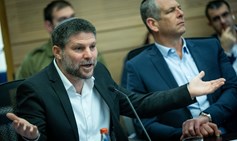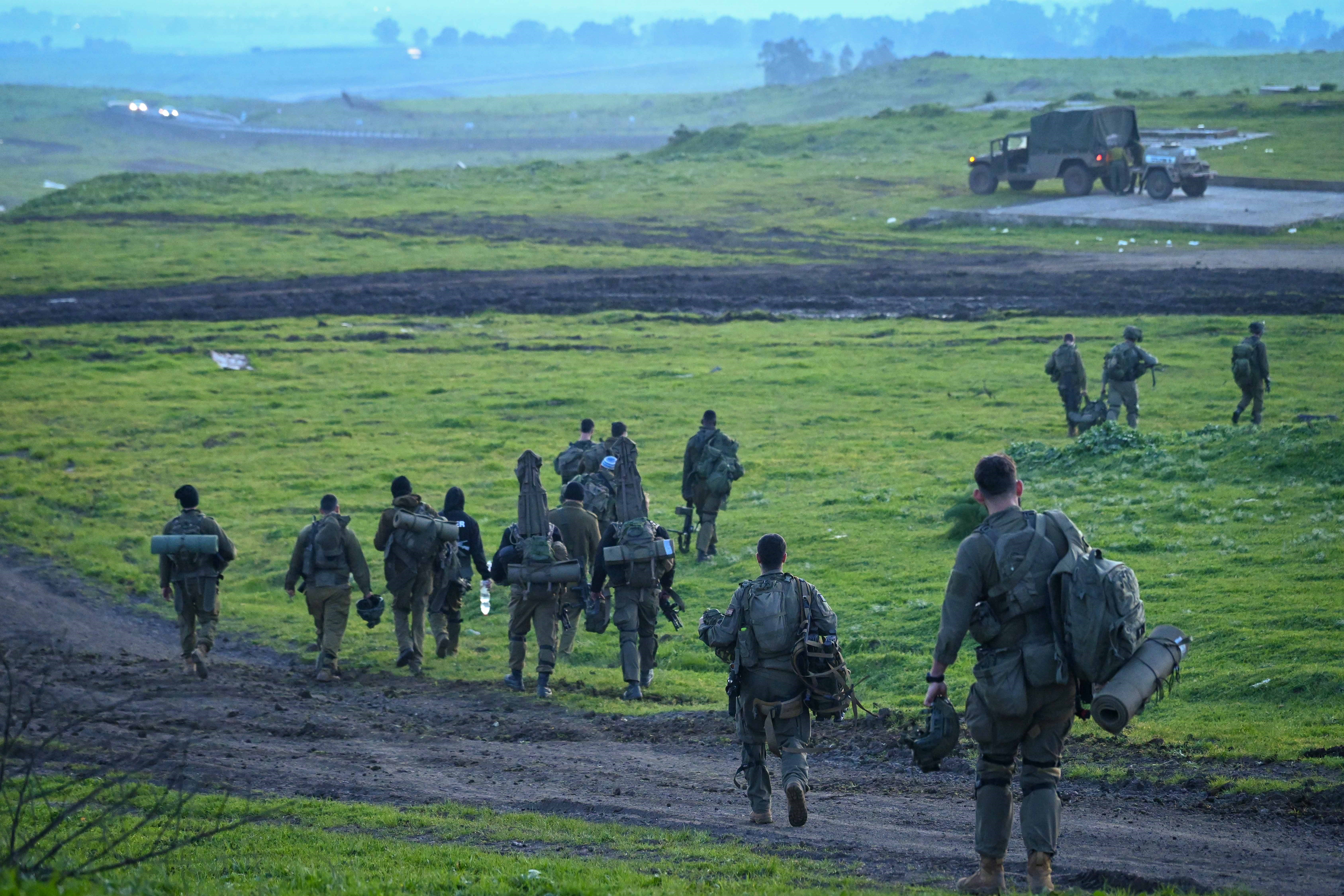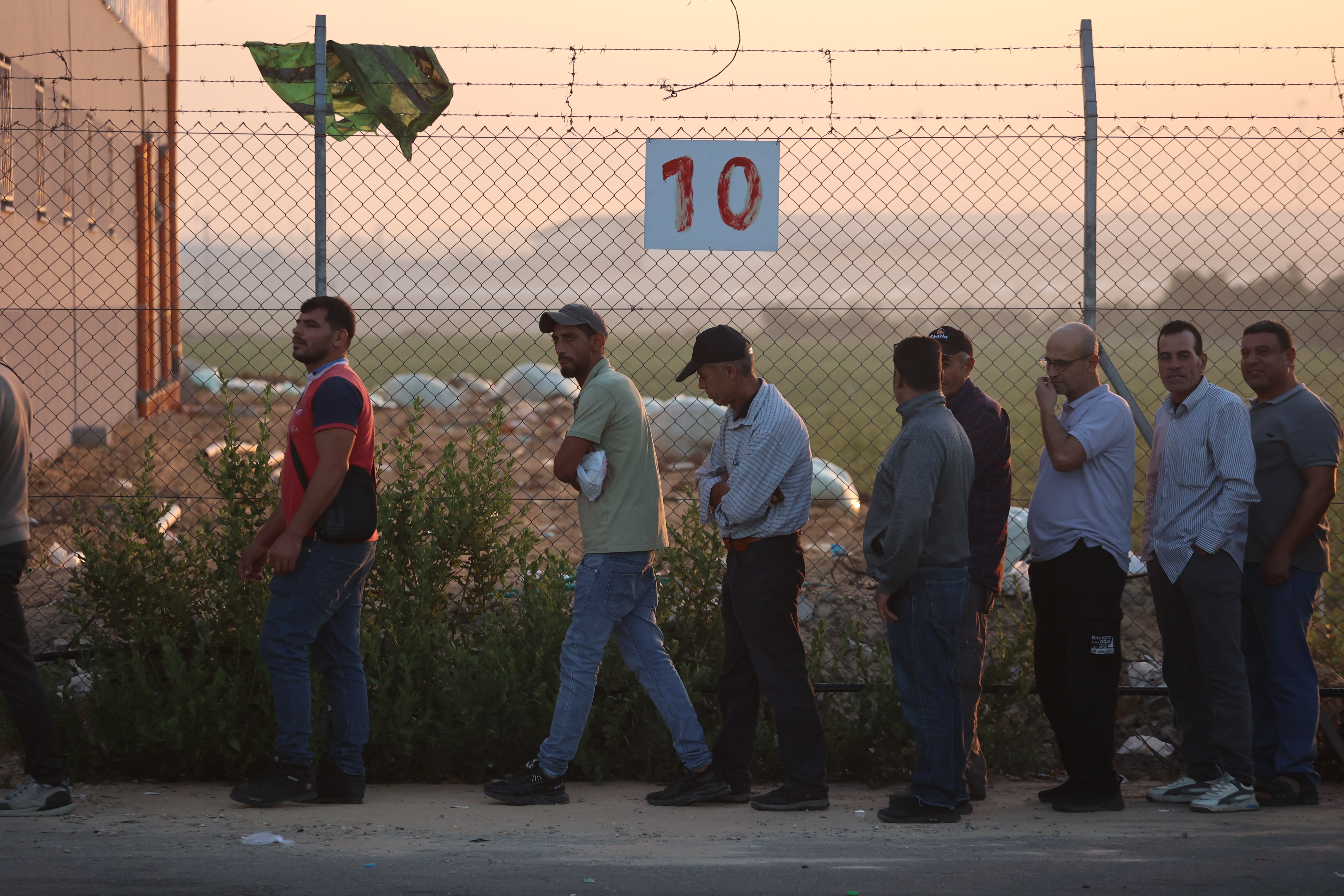

Publications Regarding Israel at War | Israeli Economy
Articles

Israel Must Consider the Economic Consequences of Occupying Gaza
Written By: Prof. Karnit Flug, Prof. Jacob Frenkel

The Financial Situation of Evacuees in Israel
Written By: Daphna Aviram-Nitzan, Omer Cohen
A special analysis of the situation among evacuees from the north and south of Israel, based on an extensive survey conducted among a nationally representative sample of workers who were in employment immediately before the outbreak of the Iron Swords war.

Survey of the Financial Situation of Workers During the Iron Swords War
Written By: Daphna Aviram-Nitzan, Omer Cohen
This survey is the second in series taken since the outbreak of the Iron Swords War assessing the financial impact of the war on the Israeli workforce.

Israel's Wartime Economy: How Bad Is It?
Written By: Prof. Karnit Flug
Prof. Karnit Flug, IDI's William Davidson Senior Fellow for Economic Policy, spoke with State of Tel Aviv's Vivian Bercovici.

High Levels of Trust in IDF More than One Year Into the War, Except Among Ultra-Orthodox and Arab Israelis
Written By: Viterbi Family Center for Public Opinion and Policy Research, Center for Security and Democracy
A special survey assessing public opinion on matters of national security, presented at IDI's annual conference on Security and Democracy. The survey found support for a mandatory draft, and significant economic penalties for those who do not serve.

Israel’s Economy Receives a Red Card
Written By: Prof. Karnit Flug
Moody's downgrading of Israel's credit rating was hardly unexpected, but given at this irregular time and the continued negative outlook it represents an extremely unusual step. It reflects Moody's assessment that geopolitical risks have increased sharply for the short and long terms.

Israel's Wartime Economy: Navigating Crisis and Beyond
Written By: Prof. Karnit Flug
Prof. Karnit Flug, VP of Research at IDI and the William Davidson Senior Fellow for Economic Policy, spoke with The Washington Institute's podcast Decision Points with David Makovsky, and discussed the current economic challenges facing Israel and future development prospects.

JFNA & IDI Webinar on Israel’s Economy with Prof. Karnit Flug and Bloomberg News’ Galit Altstein
Written By: Prof. Karnit Flug,
IDI's Prof. Karnit Flug, VP of Research and the William Davidson Senior Fellow for Economic Policy joined Jeff Schoenfeld, Chair of the Jewish Federation's Israel and Overseas Committee and Bloomberg's Galit Altstein to discuss the implications of the ongoing war in Gaza on Israel's economy.

On Moody's Credit Downgrade: Economic Policy Change Cannot Wait.
Written By: Prof. Karnit Flug
Over the weekend, Moody’s Investors Service announced that it had downgraded Israel’s credit rating from A1 to A2 and assigned it a “negative” credit outlook. Our policymakers would be well advised to study the risk analysis and assessment in Moody’s report closely and to take all possible steps to mitigate the risks.

A More Targeted Approach to IDF Reservist Compensation
Written By: Dr. Carmit Padan
Israeli reserve soldiers are making unimaginable sacrifices to protect their country. To rise to the challenge of meeting the IDF's expanded personnel needs, Israel's policy solutions must be as diverse as are the reservists serving this nation. A "one-size-fits-all" compensation approach will not cut it.

On Palestinian Workers: The Right Answer isn't Always the Easy One
Written By: Prof. Yotam Margalit
A decision to allow Palestinian workers back into Israel is not at all a simple matter. Despite recommendations by Israel's security agencies to allow entry to Palestinian workers, the Ministers of Construction and of the Economy oppose it for security reasons. As alternative solutions to the severe shortage of workers are unsatisfactory, we must ask ourselves whether we, as a country, are prepared to withstand another socioeconomic crisis.

Israeli Public Is Concerned Over Budget Priorities as the War Continues
Written By: Daphna Aviram-Nitzan, Prof. Karnit Flug, Roe Kenneth Portal
This survey was conducted in order to assess public opinion regarding the preferred economic policy in light of the war in Gaza, to identify the main areas of concern to the public, and to examine the public’s views on various social issues.

Fighting for our Home: The Economic Front
Written By: Prof. Karnit Flug, Prof. Jacob Frenkel
The ongoing war poses unprecedented challenges—military, civilian, geopolitical, and economic. Our focus is on providing necessary responses to the needs of the military, the needs of those directly affected in combat areas, mitigating the financial damage to businesses and employees, and rebuilding the communities destroyed on October 7.

The Link Between Labor Shortages and Israel’s Strategic Security
Written By: Daphna Aviram-Nitzan
The government of Israel must recognize the strategic importance of agriculture, the food sector, and other industries producing goods that are vital for the country’s security and for the continued functioning of the business sector during times of emergency and war
